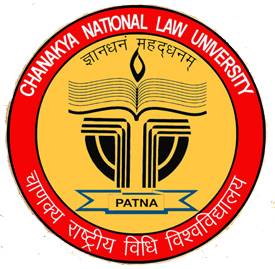
CNLU’s DPIIT IPR Chair National Seminar on “Intellectual Property Rights and Human Capital Development” (10th July 2023)
Last Updated on September 11, 2023 by Administrator
The DPIIT-IPR Chair of Chanakya National Law University, Patna, is inviting submissions for its National Seminar on “Intellectual Property Rights and Human Capital Development”.
About DPIIT-IPR Chair
The DPIIT IPR-CHAIR has been established at Chanakya National Law University, in 2023, under the SPRIHA scheme of the Department for Promotion of Industry and Internal Trade (DPIIT), Ministry of Commerce and Industry, Government of India. The IPR Chair aims to promote IPR Culture and contribute to IPR research and knowledge. The DPIIT IPR-Chair at Chanakya National Law University, looks forward to collaborating with academics, researchers, and industry to promote effective utilization of IPRs. Prof. (Dr.) S.C. Roy, Professor of Law, Chanakya National Law University is the DPIIT IPR-Chair Professor at Chanakya National Law University, Patna.
About CNLU, Patna
Chanakya National Law University (CNLU) is a National Law University in Patna, established in 2006 by the Government of Bihar (Bihar Act 24 of 2006) as a public university dedicated to the field of legal education. The Chief Justice of Patna High Court is the ex-officio Chancellor of the university. The CNLU is running five years B.A., LL.B. (Hons.), BBA., LL.B. (Hons.), LL.M., PG Diploma and Doctoral programs. This is one of the Premier Academic and Research University in India.
Concept Note for the Event
Human intellect is the creator of Intellectual Property with the investment of labour skill and judgement, generating rights in the property, known as intellectual property Rights. It’s an exclusive right granted to the creators in their creations. Intellectual Property Rights such as Patents, Copyrights, Trademark, Industrial deigns, Geographical Indications, Trade secrets, Layout designs for Integrated Circuits, Traditional Knowledge, Plant Variety and Farmers rights, Biotechnology, and agriculture, etc. It is a legal concept which refers to creations of the mind for which exclusive rights are recognized. Intellectual property rights provide an incentive to the creator to develop his/her creation and to share it with other people for the development of the society.
IPRs play a very important role in the development of individual and the society. IPRs protects and encourages the creators for innovation and economic gain. It also leads to a healthy competition among creators and users, which ultimately leads to the progress of the society. The transfer of technology is important for developmental research. It is helpful in the solution to global challenges in the field of alternate energy resources, new products to the consumers and pharmaceutical development. The agriculture and biotechnology are the part and parcel of IPRs. The industries are interwoven with intellectual properties. It is necessary to stimulate economic growth and encourage fair trading, leads to employment, trade and commerce for economic and social development. Of course, it requires effective enforcement mechanism for the protection of their rights.
Keeping all these aspects in mind, The Union Cabinet has approved the National Intellectual Property Rights (IPR) Policy on 12th May, 2016 that shall lay the future roadmap for IPRs in India. The Policy recognises the abundance of creative and innovative energies that flows in India, and the need to tap into and channelize these energies towards a better and brighter future for all. It views IPRs holistically, taking into account all disciplines across and thus aims to create and exploit synergies between all forms of intellectual property (IP), concerned statutes and agencies. It sets in place an institutional mechanism for implementation, monitoring and review. It aims to incorporate and adapt global best practices to the Indian scenario.
Among the National IPR Policies 2016, Human Capital Development (HCD) is significant benchmark objectives which encompasses all the other objectives. Human capital consists of the knowledge, skills, efficiency attitude, sincerity .It is the human resources that people invest in and accumulate throughout their lives, enabling them to realize their potential as productive members of society. Human capital is perceived to increase productivity and profitability. It is the creative, innovative and attitudinal development in all direction, required for academic and technological advancement.
Human Capital is generated while reading writing thinking analyzing the issues which is ultimately relevant to social benefits. The combination of training and skills acquired during education and job. Intellectual property rights are relations between individuals. The continuous shift towards a knowledge and innovation-driven economy to the core issue of sustainable growth, trade and commerce. The human capital formation is the agenda before the statesman. IPRs has positive impact on technological innovations only in countries with high level of human capital. The object of the seminar is to establish the relations between IPR, human capital and innovations in the context of emerging and developing global economy.
Sub Themes
- Issues on International conventions: IPR: TRIPS, WTO, WIPO, Paris, Berne, and Madrid conventions
- Legislative framework of IPR in India: Copyright, Patents, Trade secret, Trademark, Design, Lay out design, GI, PPVFR, Biological diversity, Genetic Resources (GR), Traditional Cultural Expressions (TCE), IPR Policy and allied laws.
- Challenges related to Copyright and Cinematography, Performers Rights, Music.
- Issues related to Patent in Pharmaceutical sector, protection of Medicinal plants.
- Intellectual Property Rights and Competition laws: Interface.
- Commercialization of IPR: Licensing and Technology transfer, Patent pooling,
- Role of IPR for Startups in India: IPR facilitators, encourage women entrepreneurship, incentives to MSME.
- Enforcement machineries in IPR: IPOs, Information and Communication technology, Office of the Controller General of Patents, Designs and Trademarks, CIPAM, National Biodiversity Authority (NBA)
- Redressal mechanism in IPR: Tribunals, Special courts, Mediations, ADR
- IPR Litigations
- IPR and Human capital development.
Guidelines For Abstract/ Work in Progress Submission
- All submissions must be made in electronic form in Word format (.doc/.docx) only.
- Authors should write an abstract of 500 words relating to the theme of the seminar.
- The abstract should include a suitable title for the paper, 5 minimum keywords, the name of the author(s), and their affiliation, email and mobile no.
- The abstract should be coherent and free of grammatical errors.
- The full paper shall be published in the IP BULLETINE/ E-JAIRIPA (On-line), a magazine/journal of CNLU.
Guidelines for Paper Submission
- The title of the paper should be followed by Name, Designation, Name of the Organization / University / Institution and Email address. It is mandatory to mention Email address, as all future correspondence will be through it;
- Name and details of Co-author, if any;
- Chapter: Chapter should be in Times New Roman 12 point font and double spaced. Main Title should be in full capitals, bold and centered 12 point font. Sub-titles should be in sentence case, bold and 12 point font. Author’s names should be in small capitals and centered 10 point font Footnotes should be in Times New Roman 10 point font;
- Citation Format: Please use footnotes rather than endnotes. Footnotes should conform to The Indian Law Institute, New Delhi Style;
- Originality of Manuscripts: All the contributions should be the original work of the contributors and should not have been submitted for consideration in any other Publication. Any plagiarized work will be out-rightly rejected;
- Copyright: The contributions presented to and accepted for publication and the copyrights therein shall be the DPIIT-IPR Chair, CNLU Patna ;
- The title of the Chapter should be followed by Name, Designation, Name of the Organization / University / Institution and Email address. It is mandatory to mention Email address, as all future correspondence will be through it;
- Name and details of Co-author, if any;
- The paper should be typed in MS WORD format (preferably 2007 or 2010);
- The paper must be in single column lay out with margins justified on both sides;
- The length of FULL paper should not be below 4,000 words and should not exceed more than 10,000.
Who can participate?
- Professionals, Academicians, and Research Scholars in the domain of Law, Social sciences, Science, Engineering, Technology, Pharma and Media disciplines etc.
Certification
E-certificates will be provided to all the author(s) who will present their papers in the Seminar.
How to submit
Submissions should be sent via email to: seminar@cnlu.ac.in.
Online Seminar Registration Link
Registration Fees
| For off-line: | Academicians/Professionals: Rs. 1000/- (One Thousand only) Research Scholars/Students: Rs. 500/- (Five hundred only) |
| For Online: | Academicians/Professionals: Rs. 800/- (Eight hundred only) Research Scholars/Students: Rs. 300/- (Three hundred only) |
Important Dates
- Last date for the submission of the abstract/work in progress: July 07, 2023.
- Date of National Seminar: July 10, 2023. (Offline & online)
- Revised Full paper shall be accepted by 15th August 2023 which shall be published in the CNLU online journals after peer review.
Mode of Payment
- Account Holder’s Name: DPIIT-IPR CHAIR.
- Bank: Central Bank of India, Mithapur Bus stand, Patna.
- A/C: 5395772673
- IFSC code: CBIN0284778
Note: Please share payment screenshot along with the Abstract.
Contact Details
For more information, please contact organizer:
- Prof. Dr. Subhash C Roy, DPIIT-IPR Chair Professor, CNLU, Mo: 7667074426
- Ms. Baishali Jain, Research Assistant, DPIIT IPR Chair, CNLU
Note: Candidates opting for offline paper presentation shall manage their accommodation and travel expenses on their own.





